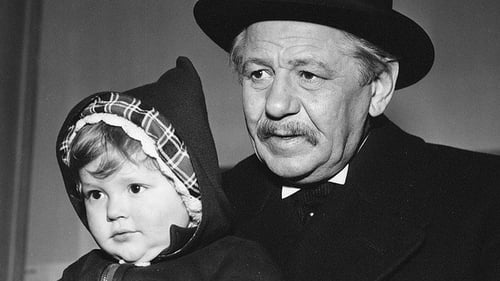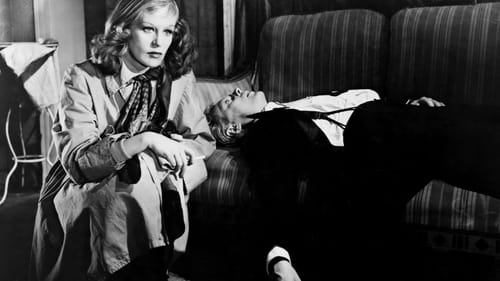Hans Pössenbacher
Nacimiento : 1895-07-14, Graz, Austria
Muerte : 1979-02-24

At the behest of his father, the young Karl Valentin is to complete a carpentry apprenticeship. When the father gets into a financial mess by a strict creditor, the boy works with growing success as a comedian to support his parents financiall

Anton Fellner

Krug

Erster Freund

Carl
Un joven seductor de 20 años, de pasado misterioso se traza un increíble plan para introducirse en la familia de la condesa Ornstein; seduce a los miembros de la aristocrática familia, enamora a la condesa, asesina sin escrúpulos cuando eso conviene a sus ambiciosos planes, traza los más descabellados proyectos corrompiendo todo lo que toca; pero nadie puede resistirse a su seductora presencia, a su exultante belleza y juventud, a su inmoral poder...

Ein Arbeiter

Wirt
A man comes to a small village to begin his new job as an attendant at the nearby castle. But everybody in the village claims that he surely must be mistaken, there is no need for an attendant at the castle.

Ossipow

Gärtner

Jäger

Zeuge Steinkirchner

Opa

Tranquilli

Bedienter

Großvater

Anton Bachmayr

Romeo

Krautmann

Dr. Aubrives

Häberlin

Bürgermeister

Vater

Wachtmeister Thiessen

Lilienkron
a tv-movie by Rainer Erler

Grandauer
Munich in the summer of 1899. In his insatiable greed for money, influence and enjoyment of life, the Marquis von Keith defies any moral law. Two women are obedient to him.

Istvan Racz

Herr Blum
Mr. Buchsbaum, third class taxes employee, lives a peaceful life until the new chief immediately criticizes his work. His only confort is his stamps collection. Sadly, even this consolation and his peace are threatened by a new, charming, neighbour who teaches piano.
Increasingly infuriated, he discovers accidentally one evening that he has the ability to go through walls. With this power, he decides to settle the scores, firstly with his boss who downgraded him.

Bürger

Faltys

Bürger

Hodgson

The third part of Paul May′s "08/15" trilogy based on the novel by Hans Hellmut Kirst takes place shortly before the end of World War II: In the spring of 1945, the German troops are practically defeated, and the battalion of Kowalski, major general von Plönnies and Asch who had risen to the rank of lieutenant in the meantime is left to its own devices to a large extent. They hope to be able to wait for the end of the war without having to encounter any combat operations. At the same time, Asch tries to prevent high-level Nazi officers from disappearing unnoticed and from cashing in on the chaotic circumstances.

Bauer
Rosalie is young and pretty maid on the farm of the winemaker Jacob. She becomes pregnant with the servant Marko, who disappears with a gypsy singer, leaving Rosalie alone in her awkward situation.

Como

Bahnhofsvorstand
Winnie is desperate and doesn't know what to do next. She is about to marry her lover Paul, who has returned from war captivity. Both want to emigrate to America short after marriage. But the young woman has an illegitimate one-and-a-half-year-old son, whom she has kept secret from her fiancé. The short-tempered Paul would never understand that. When she is on her way to the orphanage, the grumpy senior civil servant Hieronymus Spitz and his little dog Tobby get into her train compartment. After a short observation, Winnie is certain that the misantrope actually has a good heart, because he lovingly takes care of his dog. Without further ado she leaves little Niki with the tax accountant and disappears from the train. Only a note with a request remains. The overwhelmed old gentleman initially wants to get rid of the child, but then takes it home and takes care of it together with his housekeeper. Both take the bundle of joy to their hearts. But then everything turns out differently.

An aging truck driver finds smuggled money and becomes involved with a hijacking crowd.

Loisl

Gustav Lukas

Spartakist

Anderl
Historia de uno de los muchos combates de la Gran Guerra, contada desde la perspectiva alemana. Frente a las pacifistas "Sin novedad en el frente" y "Westfront 1918" (1930), esta película da un punto de vista más favorable a Alemania. Fue un enorme éxito de taquilla en su estreno el 20 de febrero de 1934, y se basó en las memorias de guerra del propio director Zöberlein, "Der Glaube an Deutschland (La fe en Alemania)". Fue financiada por el gobierno nacional-socialista, y contó con la Wehrmacht y tropas de las SA como extras. Es minuciosamente realista y muchos de sus efectos no son tales, sino que se realizaron con munición real y explosivos. Fue prohibida en Alemania tras el fin de la II Guerra Mundial. (FILMAFFINITY)








